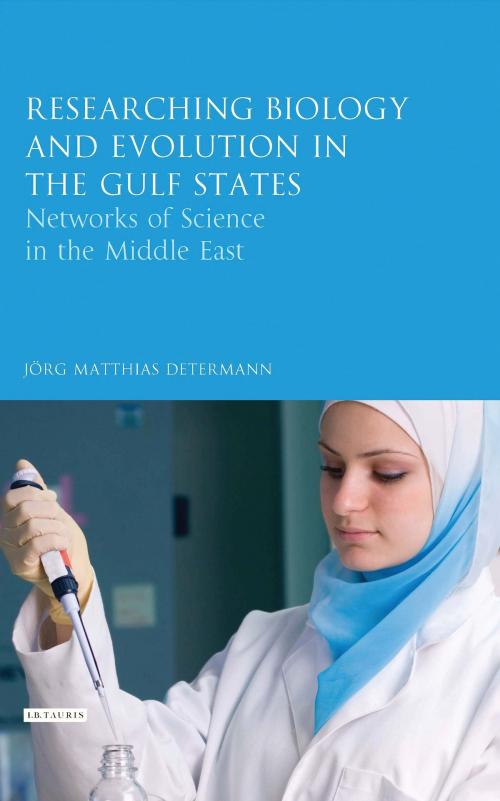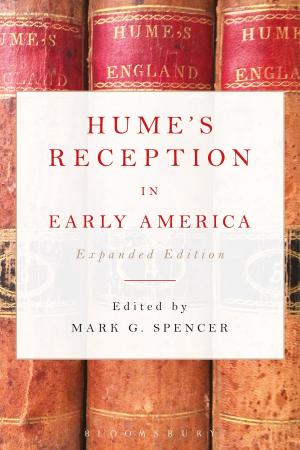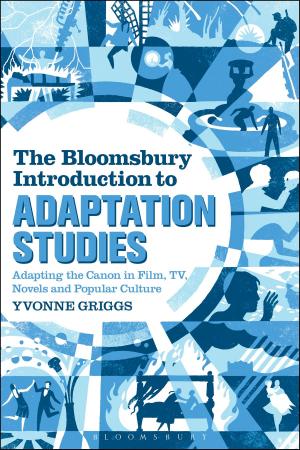Researching Biology and Evolution in the Gulf States
Networks of Science in the Middle East
Nonfiction, Science & Nature, Science, Other Sciences, Philosophy & Social Aspects, Social & Cultural Studies, Social Science| Author: | Jörg Matthias Determann | ISBN: | 9780857729446 |
| Publisher: | Bloomsbury Publishing | Publication: | August 25, 2015 |
| Imprint: | I.B. Tauris | Language: | English |
| Author: | Jörg Matthias Determann |
| ISBN: | 9780857729446 |
| Publisher: | Bloomsbury Publishing |
| Publication: | August 25, 2015 |
| Imprint: | I.B. Tauris |
| Language: | English |
Officials and religious scholars in the Gulf states have repeatedly banned the teaching and researching of the theory of evolution because of its association with atheism. But Jörg Matthias Determann argues here that, despite official prohibition, research on biological evolution has flourished, due in large part to the development of academic and professional networks. This book traces these networks through the history of various branches of biology, including botany, conservation research, ornithology and palaeontology. Typical of rentier societies, some of the scientific networks in this region consist of vertical patron-client relationships. For example, those in power who are interested in wildlife conservation have been known to offer patronage to biologists working on desert ecology. However, just as important are the horizontal links between scientists both within the Gulf region and beyond.
Because most accounts of evolution explained the development of species without referring to divine action, the theory of evolution also became associated with atheism. The theory thus also became one of the most prominent flashpoints between modern science and Abrahamic religions. In Saudi Arabia, not only religious, but even science textbooks by the Ministry of Education promote an account of life's creation by God. But through interviews with biologists working in the Gulf monarchies and through analysis of their publications, Determann finds that it has been possible for some researchers to support the theory of evolution in an environment which has been shaped by official challenges to the theory.
By asking what has enabled these scientists to incorporate the theory into their work, he offers a new perspective on science in the Middle East: examining the work and lives of individuals rather than just focusing on the state and its policies. Researching Science in Arabia furthermore provides the argument that through the work of these individuals, we should look at the Arab world as an area interconnected with global science, and therefore fully integrated into the scientific and technological advances being pioneered worldwide.
Officials and religious scholars in the Gulf states have repeatedly banned the teaching and researching of the theory of evolution because of its association with atheism. But Jörg Matthias Determann argues here that, despite official prohibition, research on biological evolution has flourished, due in large part to the development of academic and professional networks. This book traces these networks through the history of various branches of biology, including botany, conservation research, ornithology and palaeontology. Typical of rentier societies, some of the scientific networks in this region consist of vertical patron-client relationships. For example, those in power who are interested in wildlife conservation have been known to offer patronage to biologists working on desert ecology. However, just as important are the horizontal links between scientists both within the Gulf region and beyond.
Because most accounts of evolution explained the development of species without referring to divine action, the theory of evolution also became associated with atheism. The theory thus also became one of the most prominent flashpoints between modern science and Abrahamic religions. In Saudi Arabia, not only religious, but even science textbooks by the Ministry of Education promote an account of life's creation by God. But through interviews with biologists working in the Gulf monarchies and through analysis of their publications, Determann finds that it has been possible for some researchers to support the theory of evolution in an environment which has been shaped by official challenges to the theory.
By asking what has enabled these scientists to incorporate the theory into their work, he offers a new perspective on science in the Middle East: examining the work and lives of individuals rather than just focusing on the state and its policies. Researching Science in Arabia furthermore provides the argument that through the work of these individuals, we should look at the Arab world as an area interconnected with global science, and therefore fully integrated into the scientific and technological advances being pioneered worldwide.















